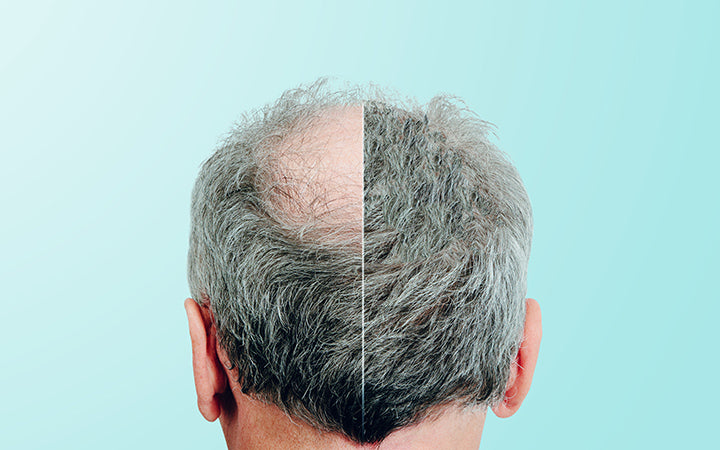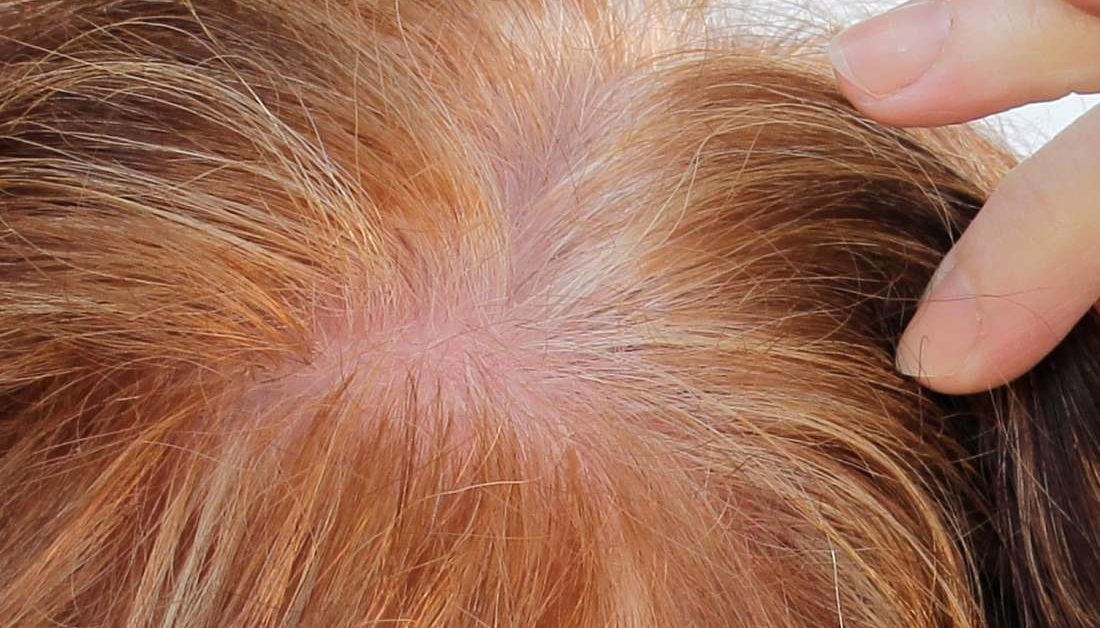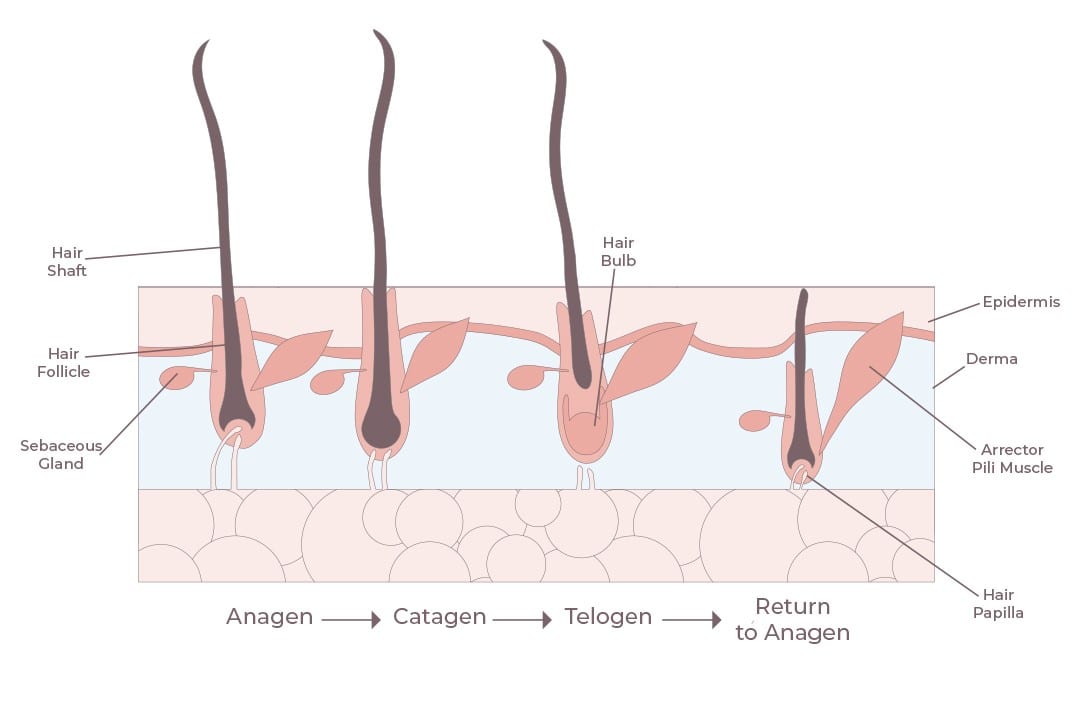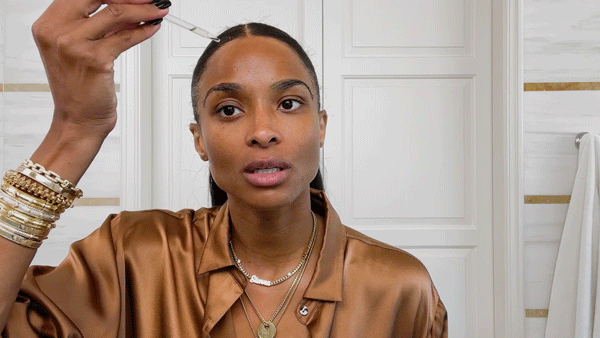Are you tired of dealing with hair problems such as dandruff, hair fall, or not seeing the desired growth? We all want lustrous locks, but sometimes we forget that healthy scalp equals healthy hair. Thankfully, with the help of science, we now understand the importance of scalp health in achieving luscious hair. In this blog post, we’ll explore the science behind hair growth and scalp health, complete with real-life examples and scientific citations to back it up. So, keep reading to learn more and discover the secret to achieving your hair goals!

What is scalp health?
Scalp health refers to the condition and maintenance of the scalp, which is crucial for the growth and overall health of hair. It involves a variety of factors, including the cleanliness of the scalp, the balance of natural oils, and the absence of conditions such as scalp irritation. A healthy scalp provides a supportive environment for hair growth, can prevent certain hair loss conditions such as alopecia areata, and can improve hair texture and appearance. Proper scalp care through methods such as regular washing, diet and nutrition, and scalp treatments can promote scalp health and ultimately contribute to healthier, fuller hair. [1][2]
Importance of a healthy scalp

A healthy scalp is fundamental for maintaining healthy and lustrous hair. Research shows that scalp oxidative stress can impact hair growth and retention, making it crucial to maintain a healthy scalp to achieve optimal hair growth and retain existing hair. Studies demonstrate that multiple factors, including scalp conditions such as psoriasis, dandruff, seborrheic dermatitis, and tinea capitis, can impact hair quality and retention. Thus, it is vital to maintain a healthy scalp to avoid potential scalp conditions that impact hair health. Adequate hair care products and scalp treatments can help maintain a healthy scalp, reducing the chances of scalp conditions and promoting healthy hair growth. [3][4]
Overview
We will explore the connection between scalp health and hair growth, using scientific studies to support our findings. We will define scalp health and explain why it is important for achieving healthy and strong hair. Additionally, we will examine different factors that can cause scalp irritation and how this impacts hair growth. Our aim is to provide readers with evidence-based tips and strategies for maintaining a healthy scalp, including the role of scalp massage and proper nutrition. By the end of this blog, readers will have a better understanding of the link between scalp health and hair growth and how to promote healthier hair through improved scalp health. [5][6]

Causes of Scalp Irritation
What is scalp irritation?
Scalp irritation is a common issue that can have negative effects on hair growth and overall scalp health. It is characterized by symptoms such as itching, redness, flaking, and tenderness. Scalp irritation can be caused by a variety of factors, including harsh hair products, environmental factors such as pollution, stress, and medical conditions like dermatitis. When left untreated, scalp irritation can lead to hair loss or thinning. It is crucial to address the underlying cause of scalp irritation and take steps to alleviate the symptoms in order to maintain a healthy scalp and promote optimal hair growth. [7][8]

Common causes of scalp irritation
There are several common causes of scalp irritation that can lead to hair loss or thinning. One of the main factors is an overgrowth of a fungus, which is also believed to cause dandruff. Other potential culprits include oily skin, stress, allergies, cold weather, and certain medical conditions like eczema and psoriasis. In addition, hair care products containing harsh chemicals or fragrances can also irritate the scalp. It’s important to identify the cause of the irritation in order to find the appropriate treatment and maintain a healthy scalp for optimal hair growth. [9][10]
How scalp irritation affects hair growth
Scalp irritation can have a significant impact on hair growth. When the scalp is inflamed, it can disrupt the natural hair growth cycle. This can lead to slower hair growth, increased hair shedding, and even permanent hair loss in severe cases. According to scientific studies, oxidative stress caused by an unhealthy scalp can negatively impact preemergent hair before it even emerges from the follicle. In addition, the metabolic activity of resident microbes in the scalp can cause oxidative damage, leading to premature hair loss. Therefore, it is crucial to maintain a healthy scalp to support natural hair growth and retention. [11][12]

Studies of scalp irritation and hair growth
Scientific studies have found a clear connection between scalp irritation and hair growth. Irritation in the scalp can lead to inflammation, which can negatively impact hair follicles and lead to hair loss. In a study published in the International Journal of Trichology, researchers found that oxidative stress caused by scalp irritation can result in premature hair loss. Hair care products that reduce the population of microbes and restore a healthy scalp can help to reduce oxidative stress, making scalp care an integral part of a healthy hair care regimen. By taking care of our scalp, we can ensure that our hair remains healthy and strong. [13][14]
Scalp massage
Scalp massage is a popular way to promote hair growth and improve scalp health. Research shows that scalp massage can stimulate the cells of hair follicles and increase blood flow to the scalp, which leads to hair thickness. There are several ways to give yourself a scalp massage, from using your fingertips to using a special massaging device. You can also incorporate essential oils like lavender and peppermint to enhance the experience. Although scalp massage is not a cure for hair loss, it is a natural and relaxing way to maintain scalp health and promote hair growth. [15][16]

Diet and nutrition
Diet and nutrition play a crucial role in maintaining not just our overall health but also our hair health. Deficiencies in certain nutrients can lead to hair loss, thinning, and even scalp irritation. Vitamins B, D, and biotin, as well as omega-3 fatty acids and zinc, are crucial for healthy hair growth. A diet that includes fatty fish like salmon and mackerel, flaxseed oil, and leafy greens like spinach, can provide the necessary nutrients for healthy hair. A daily multivitamin can also provide trace minerals like iron, magnesium, and zinc, which are essential for maintaining a healthy scalp and promoting hair growth. [17][18]
Ways to maintain a healthy scalp
Scientific studies have shown that maintaining a healthy scalp is crucial for promoting hair growth. One effective approach to achieving this is through scalp massage, which has been found to increase blood flow, promote relaxation, and stimulate the hair follicles. Another important factor is diet and nutrition, with studies suggesting a link between deficiencies in vitamins and minerals with hair loss and poor scalp health. In addition, natural remedies such as tea tree oil and aloe vera have been shown to have anti-inflammatory and antimicrobial properties that can benefit the scalp. These studies highlight the importance of taking a holistic approach to scalp health for optimal hair growth. [19][20]
The Benefits of Scalp Treatments
Types of scalp treatments
There are various types of scalp treatments available to help maintain a healthy scalp and promote hair growth. These treatments include medicated shampoos, scalp oils, and topical ointments. Medicated shampoos containing ingredients such as salicylic acid, coal tar, or ketoconazole help to combat dandruff, psoriasis, or seborrheic dermatitis. Scalp oils such as tea tree oil or jojoba oil can help to nourish the scalp and promote healthy hair growth. Topical ointments containing corticosteroids can also be used to treat certain scalp conditions. It is important to consult with a dermatologist to determine which scalp treatment is best for your specific scalp and hair needs. [21][22]

How scalp treatments benefit hair growth
Scalp treatments are an effective way to improve hair growth and maintain scalp health. Regular scalp massage can increase blood flow to the hair follicles, providing essential nutrients and oxygen for healthy hair growth. Additionally, incorporating a balanced diet and proper nutrition can help promote healthy hair growth from the inside out. Scientific studies have shown that using scalp treatments, such as zinc pyrithione-based shampoos, can not only reduce premature hair loss but also improve the overall condition of the scalp, leading to stronger, healthier hair. A holistic approach to scalp health can help maintain healthy hair growth and prevent hair loss. [23][24]
C. Scientific studies on the effectiveness of scalp treatments
Scientific studies have shown that scalp treatments can be highly effective in maintaining a healthy scalp and promoting hair growth. One study found that using a scalp massage tool increased hair thickness and growth in participants. Additionally, certain nutrients and vitamins, such as biotin and vitamin D, have been found to promote healthy scalp and hair growth. Scalp treatments, such as exfoliating scrubs and hair masks, can also improve scalp health and reduce irritation. These studies highlight the importance of maintaining a healthy scalp for optimal hair growth and suggest that scalp treatments can be a valuable tool in achieving this goal. [25][26]

Conclusion
This blog delves into the science behind scalp health and its impact on hair growth. It defines scalp health and explains its importance, while also discussing scalp irritation and common causes. The blog also explores scientific studies on the effects of scalp massage and proper diet and nutrition on maintaining a healthy scalp. It provides insights on different types of scalp treatments and their benefits on hair growth. With factual data and detailed information, this blog aims to emphasize the importance of scalp health and its impact on hair growth and retention. Proper care can result in healthy, luscious locks. [27][28]
In conclusion, maintaining a healthy scalp is crucial for promoting healthy hair growth. Scientific studies have shown that scalp conditions such as oxidative stress, seborrheic dermatitis, and psoriasis can negatively impact hair quality and retention. However, incorporating scalp massage and proper nutrition can improve scalp health. Furthermore, the use of scalp treatments with active inhibitory agents such as zinc pyrithione has been found to reduce premature hair loss. It is evident that a healthy scalp is essential for maintaining strong, vibrant hair, and implementing a scalp care regimen should be a priority for all individuals seeking healthy hair. [29][30]
.gif)


No responses yet